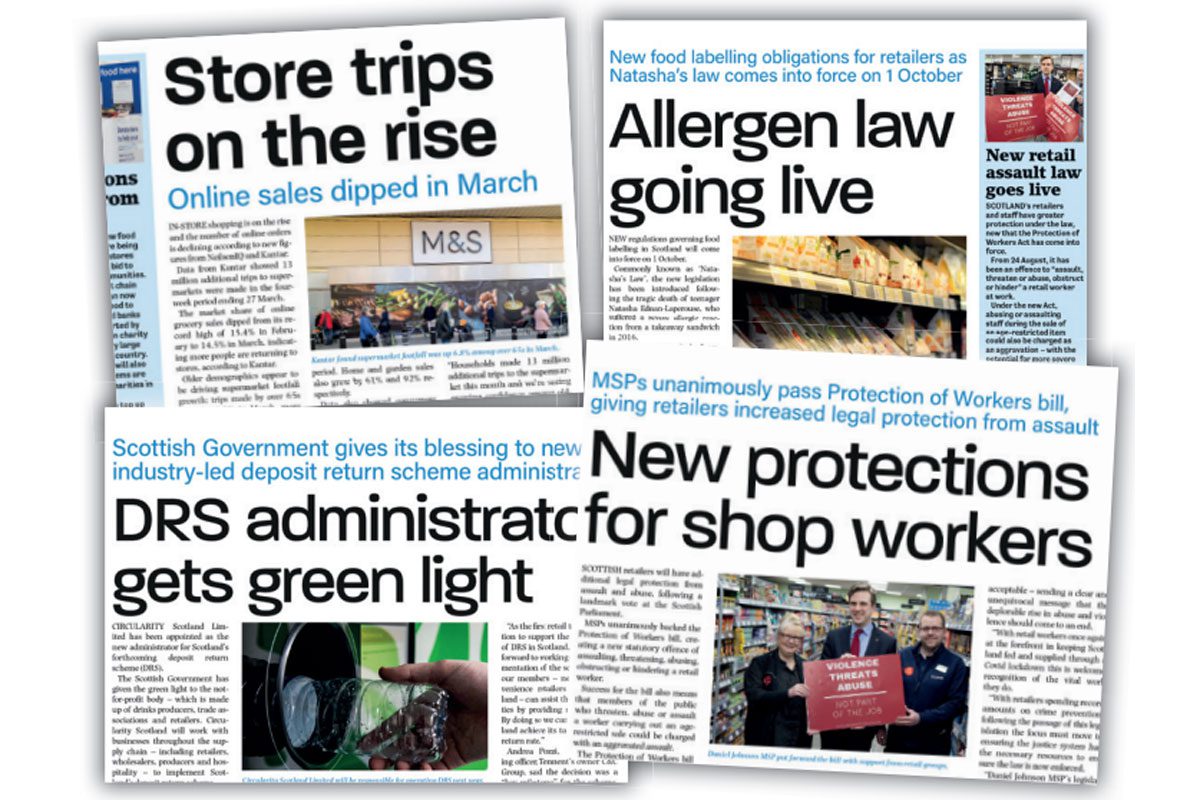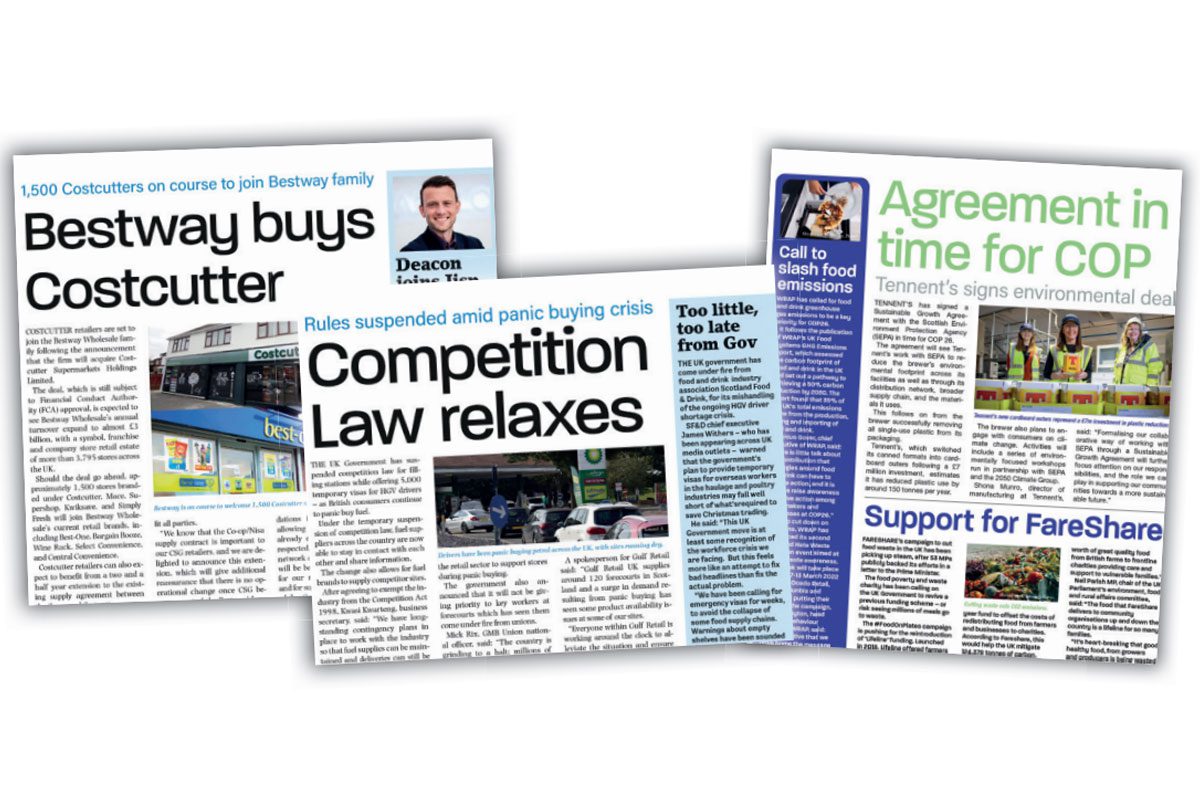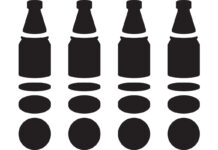2021 was filled with extra challenges for retailers along with Covid recovery

IF any retailers thought that they were in for a more relaxing time after the challenge of 2020, then this year will have proved to be a something of a disappointment.
While 2021 may have lacked the immediate drama of a mystery virus and the Prime Minister plunging the nation into lockdown for the first time, it has in many ways been one calamity following another.
Here is a quick summary of what retailers had to contend with over the course of this year:
Covid Recovery
The past two years have been unlike anything previously seen for retailers with the Coronavirus pandemic shaking up the status quo in a massive way.
Lockdowns may have lifted and workers returned to offices, but retailers still had to work to provide a safe area that customers could feel confident to shop in.
The first half of the year did show some promise, with consumer confidence on the rise again (SG April) and in-store sales taking a jump with Kantar reporting 13 million additional shopping trips during March (SG May).
However, it was the latter half that would see cause for concern as the ‘Golden Quarter’ of the Christmas shopping season appeared on the horizon.
Confidence levels began to drop and the Scottish Retail Consortium reported sales were below the expected three-month average for retail in Scotland (SG November).
The impact from Covid doesn’t seem to be letting up any time soon and only time will tell what comes next in the recovery.
Protection for Workers
Retail crime still blights Scotland, but the successful passing of a new retail crime law at the Scottish Parliament was a welcome piece of good news this year.
Introduced by Scottish Labour MSP Daniel Johnson, the Protection of Workers act came into force on 24 August which made it an offence to “assault, threaten or abuse, obstruct or hinder” a retail worker and anyone caught doing so will be charged with assault (SG September).
The new act was passed by MSPs in February with Johnson noting that the bill would mark the first step in saying ‘enough is enough’ against retail crime and called for an end to the acts of violence (SG February).
Deposit Return Scheme
The Scottish Government’s introduction of the deposit return scheme (DRS) has been a rollercoaster for retailers over this past year.
At the beginning of the year, DRS was expected to begin in July 2022 with the introduction of the scheme’s administrator, Circularity Scotland, being approved to operate as a non-profit to help deliver DRS on schedule (SG April).
Retailers have spent the past year working towards this new deadline as they prepared to implement the new scheme.
However, it was announced towards the end of November that DRS is seeing yet another delay after Lorna Slater MSP, minister for green skills, circular economy and biodiversity, announced new issues had risen from complications to do with Brexit, the pandemic and, in particular, whether or not VAT would be applied to the deposit (SG December).
Drinks suppliers, retailers, wholesalers and just about everyone else in the supply chain has been left wondering what could be next for DRS, especially with the Scottish Government still to announce a new go-live date for the scheme, leaving some questioning if it will ever go ahead at all.
The DRS drama has already seen firms invest a lot of cash, some retailers invest a lot of time and energy, and politicians expending a lot of political capital with the convenience sector. Only time will tell whether it was worth the aggravation.

Natasha’s Law
New regulations governing food labelling came into force in Scotland on 1 October.
Commonly known as Natasha’s Law, the new legislation came into force after the tragic death of Natasha Ednan-Laperouse who suffered an allergic reaction from a takeaway sandwich in 2016 that did not list the fatal allergen.
The new regulations require retailers to include an in-depth list of all ingredients and “all allergenic products and substances,” on pre-packed foods (SG September).
Mergers and Acquisitions
The landscape of retail shifted dramatically over this year with the purchases of some major players in the retail sector.
This year saw Bestway Wholesale buy over Costcutter Supermarkets Holdings Limited which saw around 1,500 stores join under the symbol group (SG February).
The past year also US private equity firm Clayton, Dublier & Rice (CD&R) acquire Morrisons in October in a deal worth £7 billion.
The supermarket proved an attractive proposition, with its share price jumping 20% on the London Stock Exchange after it turned down CD&R’s initial offer (SG July).
The Perfect Storm
Mass shortages were seen across the country during the second half of the year that left some shop shelves empty.
Dubbed by many as ‘The Perfect Storm’ of problems, the UK faced a shortage of HGV drivers which resulted in many forecourts running out of petrol stock across the entire UK and forced the UK government to relax competition law.
A shortage brought on by both the pandemic and Brexit, the UK government came under fire during October for what retailers called a poor handling of the situation with James Withers, Scotland Food & Drink chief executive, calling the government’s plan of temporary visas an “attempt to fix bad headlines than fix the actual problem.” (SG October).
COP26 & the Climate
Glasgow played host to one of the biggest events in the city’s history in November. COP26 was billed as, potentially, the final wake up call for many leaders across the planet to make good on their climate promises.
Although the world’s eyes remained firmly on delegates during the two weeks, Scottish businesses were sure to play their part in reducing the impact on the environment.
The worldwide event encouraged Tennent’s to sign a Sustainable Growth Agreement with the Scottish Evironment Protection Agency and Highland Spring made a commitment to carbon neutrality by 2040 in its operations (SG November).
The Scottish Wholesale Association also laid out its roadmap to zero emissions with its ‘Decarbonisation of the Wholesale Industry’ project and the Scottish Food & Drink Partnership launched its five step commitment to net zero emissions (SG December).
The climate emergency is far from being over and there is still plenty of work to do but it seems that Scottish businesses are more than ready to do their bit for the planet.






















